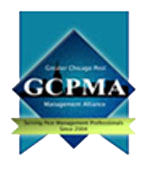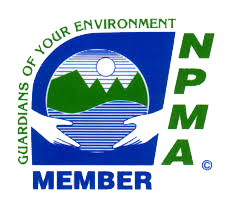Ah, the joys of homeownership: freshly painted walls, a beautiful garden, and… pests? Unfortunately, that’s the reality for many homeowners. Pests like rodents, insects, and other unwanted creatures can make their way into our homes and cause a range of problems, from property damage to health concerns. But fear not! Here’s a comprehensive guide to pest-proofing your home to ensure it remains a safe and comfortable haven.
1. Seal Up Any Cracks and Holes
Doors and Windows: It’s essential to frequently check door and window screens for any tears or gaps. Ensure they are securely fitted to block pests. For an added layer of protection, install door sweeps on your exterior doors, which act as barriers against pests.
Walls and Foundation: It’s essential when pest-proofing your home to frequently check door and window screens for any tears or gaps. Ensure they are securely fitted for shielding your home from pests. For an added layer of protection, install door sweeps on your exterior doors. This acts as barriers against pests. Seal them with caulk. For larger gaps or areas prone to rodents, consider using steel wool, as it effectively deters gnawing pests.
2. Maintain Your Yard
Trimming: Trees and shrubs growing close to the house can accidently become highways for pests. Regularly trimming back branches and bushes that touch or hang over your home will disrupt these pathways. Thus, enhancing pest prevention by making it more difficult for them to enter.
Water: Puddles or areas of standing water aren’t just unsightly; they’re also mosquito breeding grounds. Regularly check for areas in your yard where water gathers and address drainage issues to reduce the appeal for these pesky insects.
Wood Storage: Firewood is a magnet for various pests, especially termites. When storing wood, it’s best to keep it at a distance from your home’s foundation. This also reduces the risk of other pests taking refuge in the woodpile and later finding their way into your home.
3. Properly Store Food
Containers: It’s important to store food in sealed containers. Airtight containers are important for pest prevention by ensuring that food smells don’t lure unwanted guests.
Pet Food: Our pets’ food can be just as tempting to pests as our own. It’s a good practice to serve pets only what they can eat immediately and avoid leaving their food out for extended periods, especially overnight. This reduces the chances of attracting rodents and insects looking for a meal.
Trash: Your garbage can is a treasure trove for pests. Ensure that cans come with secure, tight-fitting lids to prevent odors from escaping and pests from entering. Additionally, regular disposal of trash minimizes the attraction for pests, keeping them at bay.
4. Reduce Moisture
Leaks: It’s essential to address any leaking taps and pipes promptly. A damp environment is highly inviting to many pests. Cockroaches, in particular, thrive in moist areas, so maintaining a dry interior is important to keep them and other pests away.
Ventilation: Proper ventilation is a must for every part of your home. Areas like attics and basements are particularly prone to humidity and moisture buildup. By ensuring these spaces are well-ventilated, you reduce the likelihood of creating welcoming environments for pests and mold growth. Consider dehumidifiers for especially damp areas to further ensure a dry setting.
5. Declutter Regularly
Clutter isn’t just an eyesore; it’s also a haven for various pests. From piles of papers to unused boxes, these often-overlooked areas can become ideal nesting sites. By maintaining a tidy environment, you minimize the many hiding and breeding spots pests seek. For better pest prevention, incorporate regular cleaning and decluttering sessions into your routine, focusing not just on visible areas, but also on storage spaces like closets, basements, and attics.
6. Keep Your Home Clean
Kitchen: When pest-proofing your home, keep in mind the kitchen is primary attraction for pests if not maintained. Address food spills promptly to avoid leaving any residue that can attract insects. Leaving dirty dishes out can be an open invitation for pests, so ensure that they’re washed or placed in the dishwasher before retiring for the night.
Floors: Regular floor cleaning is more than just about aesthetics; it’s a key preventive measure against pests. Regularly vacuum and mop your floors, paying special attention to often-neglected areas under furniture and right against baseboards. These spots can gather crumbs or moisture, which can quickly become hotspots for pest activity if left unchecked.
7. Know the Signs
Droppings: One of the most undeniable signs of an unwanted guest is their droppings. Specifically, rodent droppings, which are often small, dark, and pellet-like, should immediately alert you to the presence of an infestation. Don’t ignore them; instead, investigate further..
Damage: Over time, if rodents have made their way into your home, evidence of their presence will show in the form of gnaw marks. Pay close attention to areas like wiring, furniture, and even walls. These marks not only indicate an active rodent issue but can also pose safety concerns, especially when they target electrical wiring.
Sounds: Sometimes, the first sign of a problem is audible. At night, when your home is quiet, you might hear scratching, scampering, or rustling noises, particularly in the walls, ceilings, or attic. These sounds can be suggestive of rodents or other pests trying to nest or move within your home’s structures.
8. Natural Repellents
There are several non-toxic solutions you can use, for instance:
- Peppermint Oil: More than just a pleasant scent for us, rodents find the aroma of peppermint oil quite repelling. By placing a few drops on cotton balls and strategically positioning them around your home, especially in areas of suspected activity, you can create a natural barrier against these critters.
- Diatomaceous Earth: This is not just any powder; diatomaceous earth is made up of remains of diatoms, tiny aquatic organisms. When insects come into contact with it, the powder compromises their exoskeletons, leading to dehydration and eventual death. Despite its potency against many types of insects, it remains safe for humans and pets, making it an excellent choice for organic pest control.
9. Work with Professionals
When dealing with pests, there are times when home remedies and DIY approaches might fall short. In cases of a suspected severe infestation, the expertise of a professional can prove invaluable in pest-proofing your home. Consulting with a professional exterminator not only ensures a thorough assessment of the situation but also guarantees the application of treatments that are both potent against the pests and safe for the inhabitants of your home. These experts are trained to handle infestations efficiently, using methods tailored to your specific problem and ensuring long-term pest prevention measures are in place.
Conclusion: Pest Prevention
While pests are a part of life, they don’t have to be a part of your home. Pest-proofing your home requires consistent effort and attention to detail, but once done, you can enjoy the peace of mind that follows. Remember, an ounce of pest prevention is worth a pound of cure!







